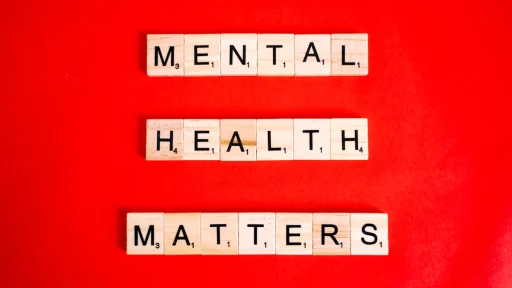
Understanding Mental Health Professionals
In the realm of mental wellness support, there are various professionals who play crucial roles in aiding individuals through their challenges. In this blog, we will delve into the distinctions between a psychotherapist and a therapist, shedding light on their unique responsibilities and qualifications.
Did You Know? Professional therapy, such as better help therapy, can provide valuable mental health counseling and support for individuals facing diverse psychological concerns.
Now, let's move on to exploring the different therapy approaches.
Exploring Therapy Approaches
When it comes to addressing mental health concerns, there are various therapy approaches that individuals can explore. These approaches are designed to provide support and guidance tailored to the unique needs of each person.
Types of Therapy
-
Cognitive-Behavioral Therapy (CBT): This type of therapy focuses on identifying and changing negative thought patterns and behaviors that contribute to mental health challenges. It is known for its practical and problem-solving approach.
-
Psychoanalysis: Psychoanalysis delves into a person's unconscious thoughts and feelings, aiming to bring repressed experiences into the conscious mind. This form of therapy often involves exploring childhood experiences and their impact on current behavior.
Effectiveness of Different Approaches
Evaluating the effectiveness of different therapy approaches is crucial in determining the most suitable option for addressing specific mental health concerns. While CBT is widely recognized for its effectiveness in treating conditions such as anxiety and depression, psychoanalysis may be beneficial for individuals seeking a deeper understanding of underlying psychological patterns.
By understanding the various types of therapy available, individuals can make informed decisions about their mental health care, ultimately leading to improved well-being and quality of life.
Therapist Qualifications
Educational Background
Becoming a licensed therapist or psychotherapist entails completing a comprehensive educational journey. Typically, individuals pursuing these roles obtain a master's or doctoral degree in psychology, counseling, social work, or a related field. This advanced education equips them with the theoretical knowledge and practical skills necessary to understand and address various mental health concerns effectively.
In addition to academic coursework, aspiring therapists often engage in supervised clinical practice to gain hands-on experience in applying therapeutic techniques and interventions. This practical training is integral to their educational background, as it allows them to develop crucial counseling skills and an understanding of ethical standards in mental health care.
Specialized Training
After completing their formal education, mental health practitioners pursue specialized training and certifications tailored to their specific areas of focus. For instance, they may undergo additional training in trauma-informed therapy, family counseling, substance abuse treatment, or other specialized fields within the realm of mental wellness support. These certifications demonstrate their commitment to ongoing professional development and their dedication to providing high-quality care for individuals facing diverse psychological challenges.
By acquiring both a solid educational foundation and specialized training, therapists are equipped with the expertise needed to offer valuable support and guidance to those seeking assistance for their mental well-being.
Did You Know? The extensive educational background and specialized training of therapists contribute to the effectiveness of better help therapy in addressing a wide range of mental health concerns.
The Benefits of Better Help Therapy
Personalized Support
In the realm of mental wellness support, better help therapy offers a unique advantage through its provision of personalized support. This professional counseling service is tailored to meet the individual needs of each person seeking therapeutic assistance. By connecting with a licensed therapist or psychotherapist, individuals can receive personalized guidance that aligns with their specific concerns and goals for emotional well-being. This tailored approach fosters a sense of understanding and validation, creating a supportive environment for individuals to explore their thoughts and emotions in a safe space.
Coping Strategies
One of the key benefits of better help therapy is the emphasis on developing effective coping strategies and skills. Through this form of therapeutic assistance, individuals are empowered to cultivate practical tools for managing stress, anxiety, and other mental health challenges. Licensed therapists utilize evidence-based techniques to equip individuals with coping mechanisms that promote resilience and emotional well-being. By learning these strategies within the context of professional counseling, individuals can navigate life's difficulties with greater confidence and adaptability.
Overcoming Mental Health Stigma
In a society where mental health stigma persists, it is crucial to promote understanding and empathy towards individuals facing psychological challenges. By fostering a culture of compassion and acceptance, we can work towards breaking down the barriers that hinder individuals from seeking the support they need for their emotional well-being.
Promoting Understanding: Cultivating empathy and understanding for individuals navigating mental health concerns is essential in dismantling the stigma surrounding psychological health. It involves acknowledging that mental health challenges are legitimate and can affect anyone, regardless of age, gender, or background. Through education and open communication, we can create an environment where individuals feel validated and supported in their journey towards emotional well-being.
Encouraging Open Conversations
Encouraging open conversations about mental health is a powerful step towards creating a supportive and inclusive community. By normalizing discussions about psychological well-being, we can empower individuals to share their experiences without fear of judgment or discrimination. Open conversations help break the silence surrounding mental health issues and pave the way for greater awareness and support within our communities.
By promoting understanding and empathy while fostering open conversations about mental health, we contribute to building a more compassionate society where individuals feel empowered to seek the assistance they need for their emotional well-being.
Embracing Mental Health Support
Seeking professional mental health support is a proactive step towards achieving improved well-being and a better quality of life. By engaging in therapeutic assistance, such as better help therapy, individuals can access the personalized care and guidance needed to navigate their mental wellness journey effectively. Professional counseling provides a supportive space for individuals to explore their emotions, develop coping strategies, and work towards holistic emotional wellness.
Breaking Down Barriers: Embracing mental health support involves breaking down societal barriers that may prevent individuals from seeking the professional help they need. It signifies a commitment to prioritizing emotional well-being and fostering a culture of understanding and acceptance.
By embracing mental health support, individuals take an empowering stride towards nurturing their mental wellness and leading fulfilling lives.







I love how this blog gives a voice to important social and political issues It’s important to use your platform for good, and you do that flawlessly